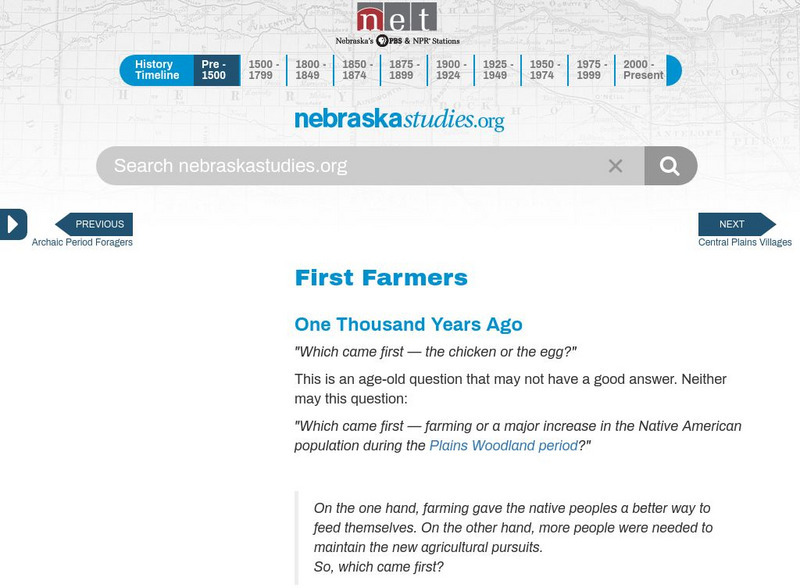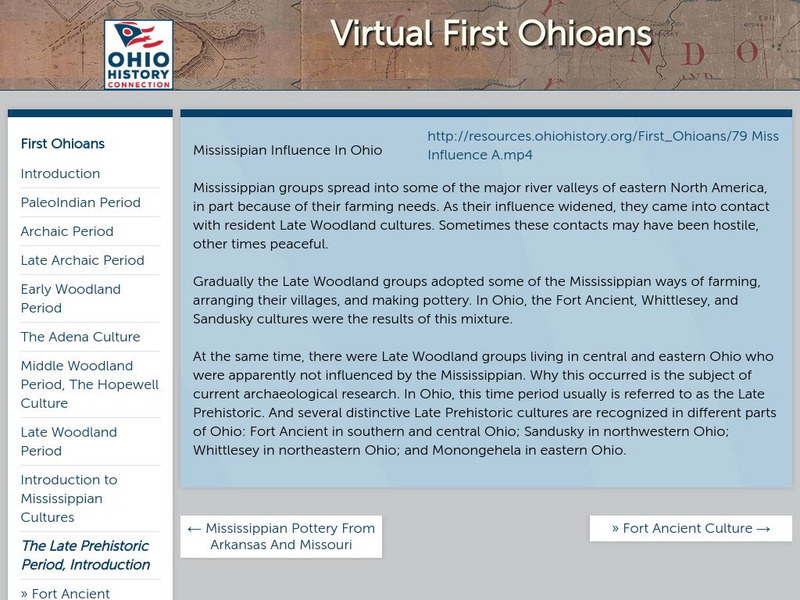University of Groningen
American History: Outlines: Mound Builders and Pueblos
The first Native-American group to build mounds in what is now the United States often are called the Adenans. They began constructing earthen burial sites and fortifications around 600 B.C. Some mounds from that era are in the shape of...
Nebraska Studies
Nebraska Studies: Nebraska's First Farmers
An extensive site filled with information about the Plains Woodland period in Nebraska. Click through the pages to find information about the first farmers prior to 1600 AD. Included are photographs of archaeological sites and teacher...
University of Wisconsin
The Why Files: Effigy Mound Culture
Site introduces the concept of mound building and explains the concept in easy-to-understand terms. Discover why the mounds were build and what they possibly meant to the ancient people.
Other
North Georgia History: Georgia's Moundbuilders
Overview of Archaic, Adena, Hopewell, and Mississippian cultures. Site offers links and pictures of Etowah Indian Mounds, Kolomoki Mounds, and Earth Lodge at Ocmulgee.
Other
Ohio Historical Society: The Late Prehistoric Period
Groups of different peoples were living all over major river valleys. Many times they would come in contact with each other. Authors discuss the groups living in the Ohio River Valley such as the Fort Ancient, Whittlesley, Sandusky and...
Other
Noaca: Pre Recorded History of the Watershed
This resource presents short overviews of cultures and artifacts found in Northeast Ohio: Archaic Indians, Adena culture, Hopewell culture, and Late Prehistoric Whittlesey culture.
PBS
Pbs Learning Media: Virtual Field Trip: Indian Mounds
The Indian Mounds experience includes virtual field trips to Ocmulgee National Monument, Kolomoki Mounds State Park, and Etowah Indian Mounds Historic Site. Additional materials include a lesson plan and user guide.
ClassFlow
Class Flow: Ohio's Early Inhabitants
[Free Registration/Login Required] This flipchart discusses Ohio's earliest inhabitants including Mound Builders and Glacial Kame People.








